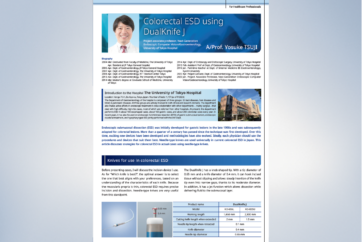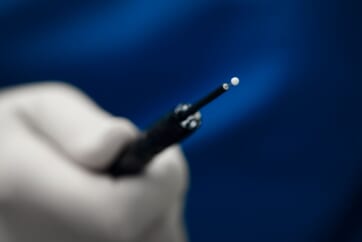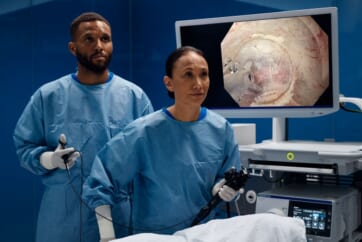ITknife2™ device Technique
Model KD-611L
Dr. Hiroyuki Ono
Shizuoka Cancer Center
Disclaimer:
The positions and statements made herein by Dr. Hiroyuki Ono are based on Dr. Hiroyuki Ono’s experiences, thoughts and opinions. As with any product, results may vary, and the techniques, instruments, and settings can vary from facility to facility. The content hereof should not be considered as a substitute for carefully reading all applicable labeling, including the Instructions for Use. Please thoroughly review the relevant user manual(s) for instructions, risks, warnings, and cautions. Techniques, instruments, and setting can vary from facility to facility. It is the clinician’s decision and responsibility in each clinical situation to decide which products, modes, medications, applications, and settings to use.
Interview With The Expert
It facilitates incision and dissection in total while maintaining the advantages of the conventional ITknife™ device. The incision and dissection speeds have also been increased even more.
However, you have to keep in mind that ITknife2™ device is quite a bit sharper. If you make the same kind of strokes you’re used to with ITknife™ device, you may cut too deeply and increase the risk of perforation. You should be careful with the knife until you get used to it. It’s also a good idea to use the PulseCut Mode. Or step on the high-frequency switch intermittently with a continuous wave mode, to prevent ITknife2™ device from slipping and causing a perforation. In addition, as with ITknife™ device, laying the knife down too much increases the risk of perforation, so ITknife2™ device’s sheath should be held slightly to upright direction than ITknife™ device. Remember to be careful to avoid problems in the initial introductory phase. However, you won’t need to think about these points once you’ve gotten used to ITknife2™ device after several uses.
In such a case, point the insulated tip straight toward the muscle layer and swing laterally by manipulating the endoscope or using the angulation function to cut the site little by little.
I have rarely needed to use a needle knife. However, a needle knife offers improved cutting performance when an ulcer scar is very hard. In such a case, I use a needle knife until the mucosa is curled up in a certain amount and then I switch to ITknife2™ device.
Applicability of the ITknife2™ device
Difficulty per region
○ : Easy. No mark: Ordinary. △ : Difficult.
| Cardiac region | ||
|---|---|---|
| Fornix | △ | |
| Lesser curvature of upper body | ||
| Greater curvature of upper body | △ | |
| Anterior wall of upper body | ||
| Posterior wall of upper body | ||
| Lesser curvature of middle body | ||
| Greater curvature of middle body | ||
| Anterior wall of middle body | ||
| Posterior wall of middle body | ||
| Lesser curvature of lower body | ||
| Greater curvature of lower body | ||
| Anterior wall of lower body | ||
| Posterior wall of lower body | ||
| Lesser curvature of anterior wall | ||
| Greater curvature of antrum | ○ | |
| Anterior wall of antrum | ○ | |
| Posterior wall of antrum | ○ | |
| Pyloric ring | △ |
Note for beginners: It is recommended to start a trial procedure on a minor lesion in the anterior or posterior wall in the antrum or in the greater curvature. If the endoscope cannot approach the lesion in the lesser curvature of the lower body, it is recommended that you use a multi-bending endoscope.
*Multi-bending endoscope is not available in some areas.
- Content Type




